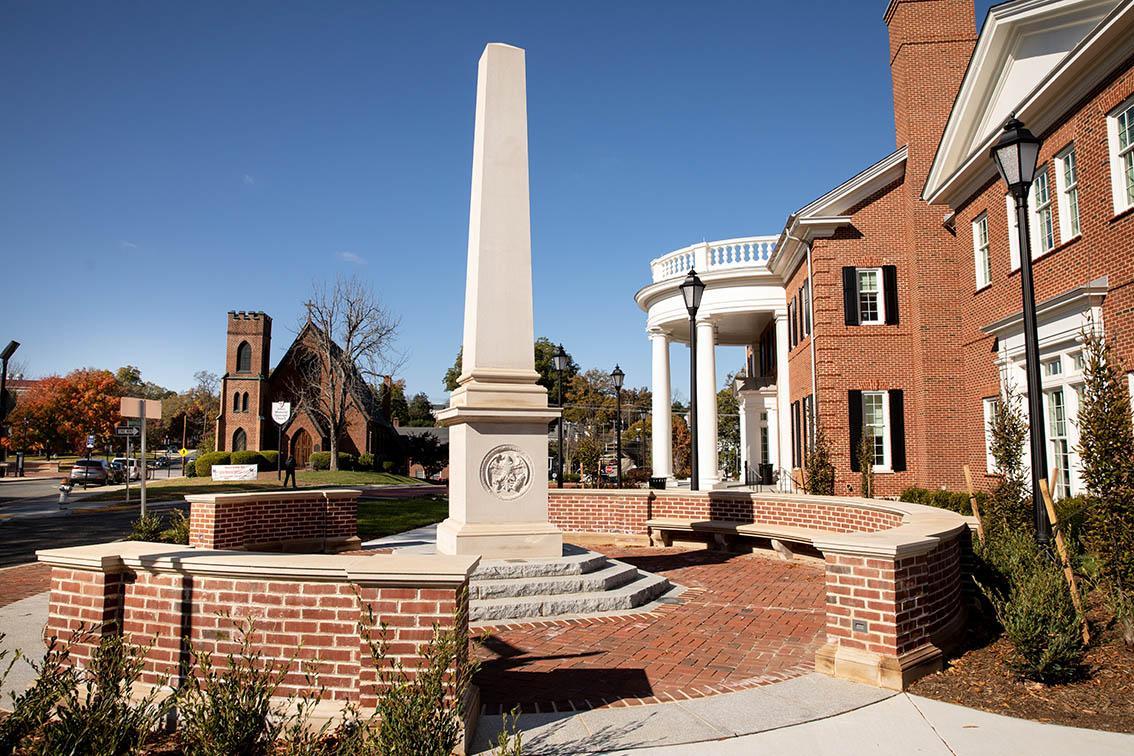Longwood University will undertake a multiyear project to study its own institutional history, including the role of African-Americans on campus, President W. Taylor Reveley IV announced today.
The project—to be called The Bicentennial Initiative, with an eye to the university’s 200th anniversary in 2039—will engage faculty, staff and students as well as the broader community in a variety of projects that could include oral history, archival research and digital mapping. In the years ahead, it is expected to result in courses, publications and public programs to discuss and disseminate findings, as well as initiatives to provide interpretation and context for campus spaces.
Reveley has appointed as co-directors Associate Professor of English John Miller, a specialist in Southern literature and history who teaches a course called “Conflict in Virginia’s Places and Past, and Cainan Townsend ’15, director of education and public programs at the Moton Museum.
L. Francis “Skip” Griffin, Jr., H’19, son of the late civil rights leader the Rev. L. Francis Griffin and Longwood’s Commencement speaker in 2019, will serve as a senior advisor to the initiative, along with Dr. David Coles, professor of history, and Dr. Theresa Clark, M.S. ’88, associate professor emerita of social work.
In recent years, I am proud that we at Longwood have established ourselves as a leader in higher education in terms of reckoning openly and honestly with our past.
President W. Taylor Reveley IV Tweet This
“Longwood and our home community of Farmville and Prince Edward are truly important places in American history,” Reveley said. “That history includes aspects both extraordinarily noble and deeply shameful, but it is our history. In recent years, I am proud that we at Longwood have established ourselves as a leader in higher education in terms of reckoning openly and honestly with our past. The goal with this latest effort is to consolidate and build on that work and to truly serve as a model for how great universities can engage their students in this valuable process.”
The former R.R. Moton High School, now a National Historic Landmark and Virginia’s only civil rights museum, was the site of the 1951 student strike led by Barbara Johns, a 16-year-old junior at the school. Moton students then became plaintiffs in the landmark case that was ultimately decided as part of the U.S. Supreme Court ruling in Brown v. Board of Education. As part of Virginia’s Massive Resistance movement, Prince Edward County defied a court order to desegregate and closed its public schools for five years. A subsequent U.S. Supreme Court decision led to the reopening of the schools in 1964.
Longwood and the Moton Museum today are close partners. In 2014, Longwood’s Board of Visitors issued an apology for the university’s actions and inactions during Massive Resistance and for its insufficient efforts to diversify its student body in that era. In 2018, Longwood erected a monument on campus honoring Johns and other consequential Farmville figures in American history who worked to expand liberty, including Patrick Henry as well as the freed people of Israel Hill, which was founded in the community in the early 19th century.
“Across higher education, institutions are grappling with how best to confront their own historical legacy in ways that both honor often difficult truth and demonstrate a commitment to doing better in the future,” Reveley said. “The right way to do so will vary from place to place, depending on their particular history, culture and educational mission. In recent years I have been thinking deeply about how best for Longwood to continue such work. This initiative draws strength from the expertise of our faculty, fits well with our citizen-leadership mission and the educational goals of our Civitae core curriculum, and will engage our students in a far-reaching way.”



Leave a Comment